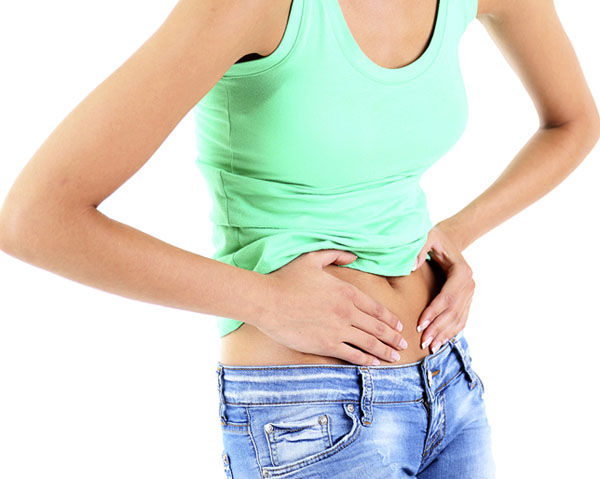Irritable bowel syndrome is an intestinal disorder that causes episodes of abdominal pain, cramps or bloating, and diarrhea or constipation. Other symptoms are mucus in stool or feeling that bowl has not emptied after a bowel movement. People with IBS may feel full more quickly than normal during meals. Some peoples have nausea, back pain, frequent urination, and headaches. Although symptoms are intermittent, IBS can persist for many years. The cause is unknown, but sensitivity to certain foods, bowel infection, and stress can trigger attacks.
IBS Symptoms
- Variable and erratic bowel habits, alternating between constipation and diarrhea.
- Feeling full after small meals.
- Abdominal bloating after meals.
- Abdominal pain or cramping.
- Excessive gurgling noises in the stomach.
- Mucus in the stool.
Home Remedies for IBS
- Probiotics: Consume foods with probiotics such as yogurt that may help ease the symptoms. People with IBS may not have enough good bacteria.
- Psyllium husks: Take 1 teaspoon of psyllium husks (sat isabgol) with 1/2 cup of fresh yogurt 1 hour after dinner. Fiber in psyllium tends to normalize bowel movements.
- Flaxseed: Boil 1 teaspoon of flaxseed (linseed) in a cupful of water to make a tea, and drink it at bedtime. OR Take 6 to 20 grams grounded flaxseed per day. Start slowly with flaxseed and add more gradually. Flaxseed reduce constipation, bloating, and abdominal discomfort.
- Artichoke leaf extract: Take 1 gm of artichoke leaf extract daily in divided doses with meals. It can help relieve cramping, flatulence and constipation.
- Peppermint: If troubled by abdominal pain or bloating, take a enteric-coated capsule of peppermint oil, half an hour before a meal, three times a day. Peppermint is a natural antispasmodic that relaxes smooth muscles in the intestines.(Note: Peppermint oil may cause heartburn)
Do’s for IBS
- Keep a note for few weeks during an episode of IBS to find out any possible contributory factors. Common triggers for IBS include dairy products, wheat, citrus fruits, alcohol, and coffee.
- Eat and drink slowly, and chew food thoroughly. Eat several small meals a day.
- Drink plenty of water.
- If having constipation, add more fiber to your diet, such as cereals, brown rice, fruits, and vegetables.
- Exercise regularly for 20-30 minutes a day (such as walking, cycling, or swimming) to help reduce stress and regulate the bowels.
- If stress triggers IBS, manage stress by practicing deep breathing exercise or meditation.
Don’ts for IBS
- Avoid tea, coffee, carbonated drinks, and alcohol.
- Do not smoke.
- Avoid spicy and oily foods.
- Avoid gas-producing foods, such as beans, broccoli, and cabbage.
- Avoid foods high in acid, such as citrus fruit.
See Doctor
- If you suspect you have IBS, see your doctor. IBS isn’t something to self-diagnose.
- Symptoms do not subside or worsen after 2 weeks of above treatment.
- Develop new symptoms.
★★ Get our FREE Mobile app, Recommended by 90+ Doctors. Stay Healthy! ★★

Sir i have last year brain strock now last 8 month ibs problem .v condition.pl suggest me what I do.swearpain in upper abdon.thanks
Complaint of IBS since 7 months. Taking Pancreaflex and caps. Of probiotics with melatonin. Having abdominal pain and cramps. Severe constipation and fatting. Acute constipation. Iam Diabetic and under treatment. Please Advise me on the treatment.